A new luxury ryokan is set to open in Tokyo’s Ginza district. It aims to attract wealthy travelers from Japan and abroad. The property, called Fufu Tokyo Ginza, will begin operations on November 16. It’s the first Tokyo location under the Fufu brand, owned by Hulic Co. and run in partnership with Kato Pleasure Group.
The ryokan held a preview event on October 31, revealing its spacious rooms, private hot springs, and refined Japanese design. Hulic said it wants the average room rate to reach the ¥300,000 ($1,940) range, positioning the facility among Japan’s top luxury accommodations.
Hot springs and an all-suite design
 The private dining room at Fufu Tokyo Ginza. (Picture: Kato Pleasure Group)
The private dining room at Fufu Tokyo Ginza. (Picture: Kato Pleasure Group)
The ryokan offers 34 guest rooms, each equipped with a private bath filled with natural hot spring water transported from Atami in Shizuoka Prefecture. Room sizes range from 55 to 163 square meters, and every unit is designed as a suite to ensure privacy and comfort.
Each room includes a terrace, allowing guests to enjoy Ginza’s city lights and seasonal greenery. The interiors emphasize calm tones, natural materials, and a minimalist aesthetic that blends tradition and modern luxury.
Room rates start at ¥169,400 per night ($1,100) for two guests, including two meals, and can reach up to ¥427,900 ($2,720) depending on the room type. Guests can also choose plans that include only breakfast or no meals.
The dining options highlight seasonal Japanese cuisine served in private dining rooms only. Guests can select from multi-course menus priced between ¥19,800 ($128) and ¥55,000 ($357), or dine at an on-site sushi restaurant.
The ryokan also accommodates private banquets and events, reflecting its focus on personalized service and high-end hospitality. On the rooftop, an open-air lounge lets guests relax in a foot bath while enjoying alcoholic or non-alcoholic drinks. The setting aims to create a relaxed, urban onsen experience amid Ginza’s skyline.
Demands are already high, with aggressive pricing targets
According to Hulic, reservations are already about 50% full through April 2026. Around 70% of bookings come from domestic guests, many of them repeat visitors who have stayed at other Fufu properties.
The company expects the average room rate to exceed ¥150,000, with plans to raise it to ¥300,000 as more international travelers return to Japan. Hulic aims to have foreign guests make up more than half of future visitors.
The location sits on Chuo-dori Avenue, surrounded by luxury boutiques and Matsuya Ginza, one of the area’s landmark department stores. The building includes a direct underground entrance from Ginza-itchome Station on the Tokyo Metro Yurakucho Line, making access convenient for both domestic and overseas guests.
Rising prices reflect growing luxury demand
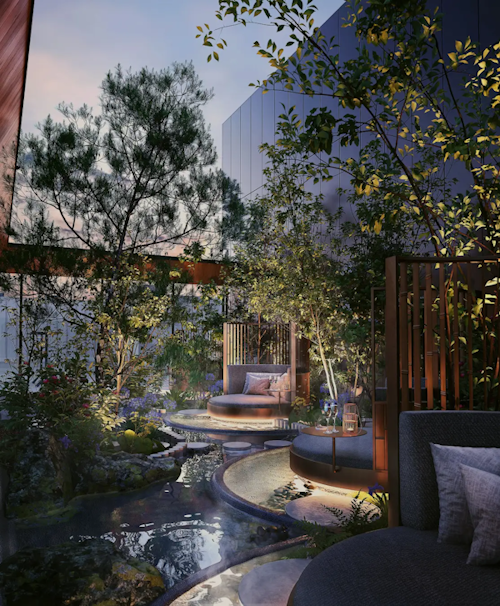 The rooftop lounge at Fufu Tokyo Ginza. (Picture: Kato Pleasure Group)
The rooftop lounge at Fufu Tokyo Ginza. (Picture: Kato Pleasure Group)
The launch of Fufu Tokyo Ginza follows a nationwide surge in luxury hotel openings. International brands like Aman Tokyo, Bulgari Hotel Tokyo, and The Ritz-Carlton Nikko now offer stays around ¥300,000 per night, drawing affluent travelers seeking exclusivity and cultural immersion. The Bellustar Hotel, part of the new-ish Kabukicho Tower in Tokyo, has rooms that go for up to $13,500 a night.
In Kyoto, new entrants such as Dusit Thani Kyoto and Six Senses Kyoto blend Asian resort styles with Japan’s traditional atmosphere. These openings show how Japan’s hospitality sector is evolving to serve a growing luxury market.
Planning a trip to Japan? Get an authentic, interpreted experience from Unseen Japan Tours and see a side of the country others miss!

“Noah [at Unseen Japan] put together an itinerary that didn’t lock us in and we could travel at our own pace. In Tokyo, he guided us personally on a walking tour. Overall, he made our Japan trip an experience not to forget.” – Kate and Simon S., Australia

See a side of Tokyo that other tourists can’t. Book a tour with Unseen Japan Tours – we’ll tailor your trip to your interests and guide you through experiences usually closed off to non-Japanese speakers.
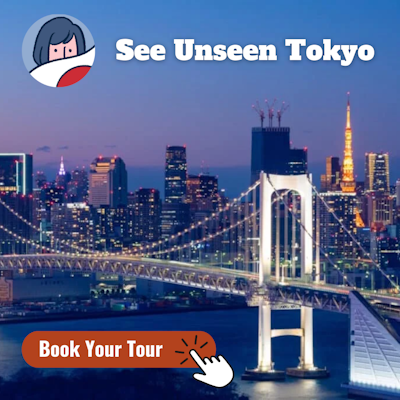
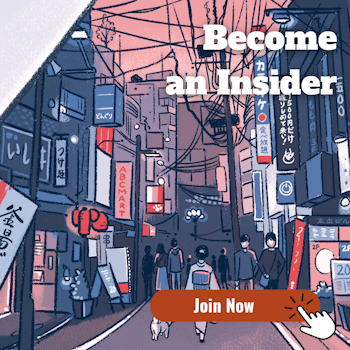
Want more news and views from Japan? Donate $5/month ($60 one-time donation) to the Unseen Japan Journalism Fund to join Unseen Japan Insider. You’ll get our Insider newsletter with more news and deep dives, a chance to get your burning Japan questions answered, and a voice in our future editorial direction.
Not all luxury offerings in Japan are successful, however. Tochigi Prefecture, for example, had to pull the plug on its $25,000 luxury tour package after no one signed up for it.
The appeal of the ryokan experience
Foreign visitors often view ryokan as a uniquely Japanese accommodation style. It combines onsen bathing, tatami rooms, and traditional hospitality.
Research by Japan’s tourism authorities shows that 68% of prospective travelers want to stay in a ryokan, although only 49% actually have. Limited online visibility and booking options have contributed to the gap between interest and experience.
Regions like Yudanaka Onsen in Nagano have improved their global presence by joining international booking platforms. The effort helped increase recognition among independent travelers who plan and book online.
Experts believe that facilities like Fufu Tokyo Ginza can help redefine the modern ryokan. By offering traditional hospitality in urban settings, they can introduce the culture to travelers who might not visit rural hot spring towns.
Challenges remain for traditional ryokans
However, the rise of luxury urban ryokans also raises concerns. Some industry observers have raised questions about the growing push to globalize ryokan brands. While several companies aim to open Japanese-style inns abroad, traditionalists warn that such ventures risk losing authenticity.
They argue that a ryokan’s essence lies not in architecture or décor, but in the spirit of Japanese hospitality, something rooted in local customs and service culture. Even if an overseas property mimics the appearance of a ryokan, it may only function as a “ryokan-style hotel,” lacking the cultural depth found in Japan.
Advocates for tradition believe that protecting and nurturing genuine ryokan culture within Japan is the key to strengthening its international reputation. Instead of focusing on overseas expansion, they emphasize supporting domestic inns that preserve authentic craftsmanship and hospitality, ensuring the ryokan remains a living symbol of Japanese culture in a globalized world.
For example, detaching lodging from traditional meals, a trend called “separate stay and dining,” may erode Japan’s cultural hospitality model. Many smaller inns struggle with staff shortages and rising costs, leading to simpler service models. Industry veterans argue that even modestly priced ryokans can maintain tradition by adjusting their approach rather than reducing quality.
On the road to balancing inbound growth and cultural authenticity
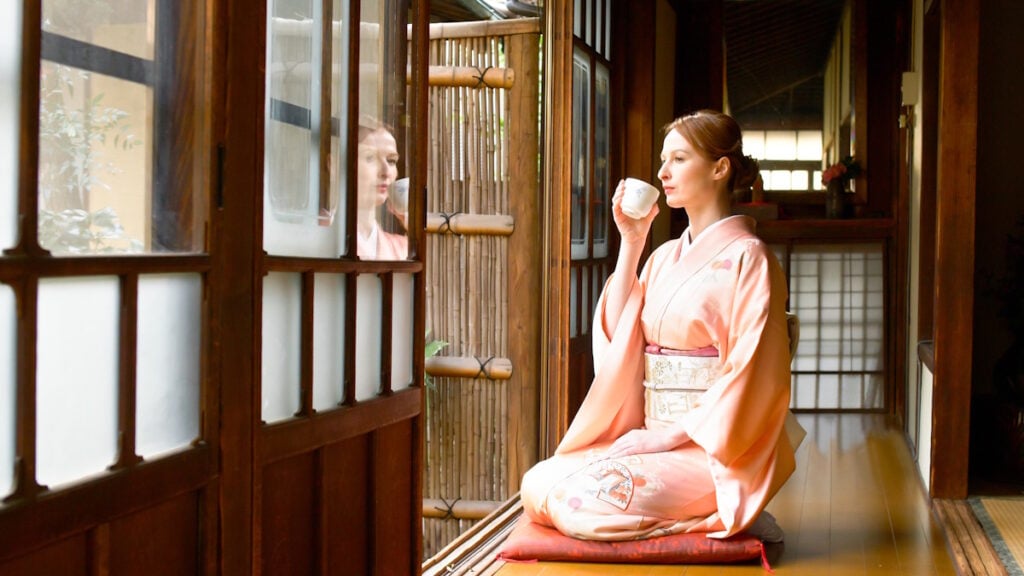 Picture: cs05 / PIXTA(ピクスタ)
Picture: cs05 / PIXTA(ピクスタ)
Japan continues to experience a surge in inbound tourism, approaching 20 million annual visitors. Hotel occupancy in major cities often stays near 80%, while many ryokans lag behind. Authorities and local governments are encouraging inns to modernize booking systems and adopt cashless payments to attract foreign guests.
The Japan Tourism Agency (JTA) issued the “Ryokan-Oriented Inbound Reception Points Guide” in March 2025. It aimed at helping traditional Japanese inns adapt more smoothly to overseas guests. This guide distills feedback from foreign media staying at ryokans and offers actionable recommendations in six key areas: meals, service, hot springs, culture, rooms & settings, and environment.
For example, it highlights that simply offering Japanese cuisine isn’t enough; some foreign guests prefer Western-style breakfasts or smaller portions. The JTA emphasizes multilingual web presence, digital payment readiness, and clear on-site signage so non-Japanese speakers can understand ryokan systems and manners.
Some towns, such as Nozawa Onsen, have successfully introduced low-cost digital payment tools to help small inns handle international visitors. The government also supports Wi-Fi expansion and multilingual websites, ensuring travelers can access and book ryokans more easily.
Planning a trip to Japan? Get an authentic, interpreted experience from Unseen Japan Tours and see a side of the country others miss!

“Noah [at Unseen Japan] put together an itinerary that didn’t lock us in and we could travel at our own pace. In Tokyo, he guided us personally on a walking tour. Overall, he made our Japan trip an experience not to forget.” – Kate and Simon S., Australia

See a side of Tokyo that other tourists can’t. Book a tour with Unseen Japan Tours – we’ll tailor your trip to your interests and guide you through experiences usually closed off to non-Japanese speakers.


Want more news and views from Japan? Donate $5/month ($60 one-time donation) to the Unseen Japan Journalism Fund to join Unseen Japan Insider. You’ll get our Insider newsletter with more news and deep dives, a chance to get your burning Japan questions answered, and a voice in our future editorial direction.
Analysts see Fufu Tokyo Ginza as part of this broader movement; a fusion of tradition and innovation designed to revitalize Japan’s ryokan industry while appealing to global travelers seeking authenticity and comfort.
Sources
高級旅館「ふふ 東京 銀座」公開、客室単価30万円台へ ヒューリック 日本経済新聞
1泊30万円でも訪日客に大人気!外国人観光客が選んでいる高級宿と人気旅館はどこ? DIAMOND ONLINE
旅館文化が壊される…外国人向け「素泊まり」増加がもたらす深刻な未来 DIAMOND ONLINE
旅館がインバウンドに対応するために 日本交通公社
旅館向け インバウンド受入ポイント集 国土交通省観光庁
2025年11月16日開業「ふふ 東京 銀座」銀座の空が広がる ルーフトップラウンジ 五感で愉しむ日本料理. PRTimes

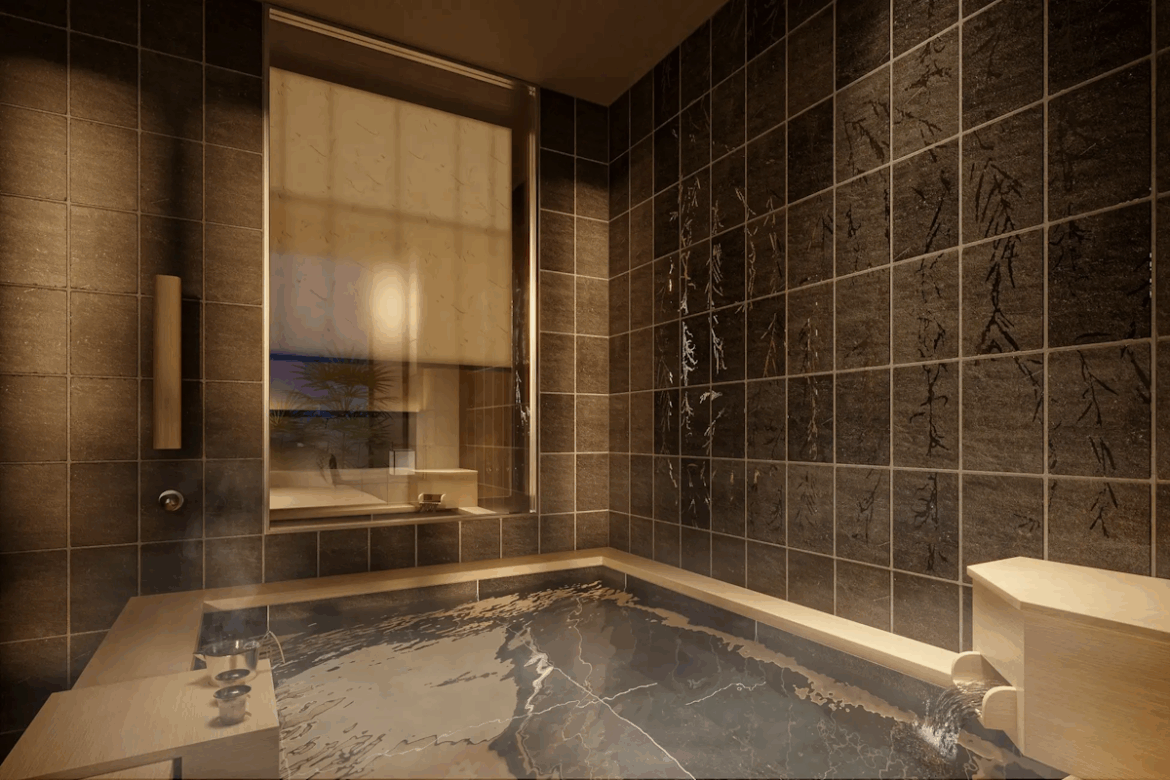
AloJapan.com